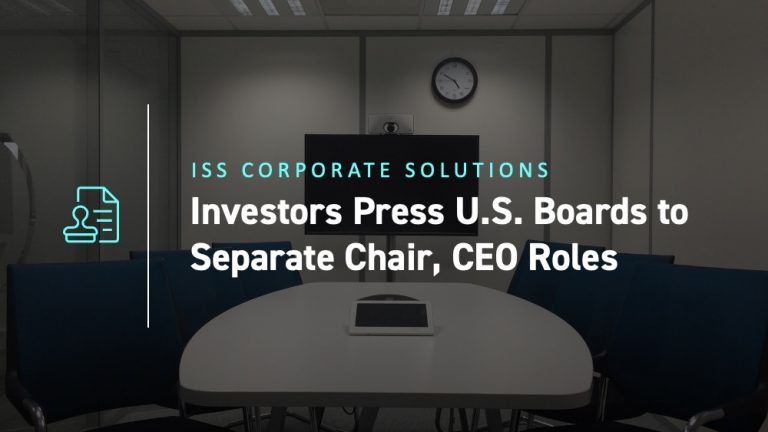Below is an excerpt from ISS-Corporate’s recently released paper “Equity Plans: Balancing Company Flexibility With Shareholder Expectations”. The full paper is available for download from the ISS-Corporate online library.
KEY TAKEAWAYS
- No more than 15% of equity plans on the ballot over the past five years limit the plan administrator’s capacity to accelerate awards.
- Companies’ inclusion of Minimum Vesting Requirements within their plans has remained consistent. Over the past five years, four out of 10 equity plan proposals contain minimum vesting provisions.
- Although considered a problematic practice, there was a 5% increase in plan proposals with evergreen provisions within the Russell 3000 index in 2023.
- The prevalence of S&P 500 companies prohibiting the liberal share recycling of full value awards has decreased from 78% in 2020 to 70% in 2023. The same trend was observed for the liberal share recycling of appreciation awards, which decreased from 94% in 2020 to 90% in 2024.
Equity plans serve as a vital mechanism for attracting executives and employees and retaining current talent. However, equity compensation results in a transfer of wealth from existing shareholders to employees and can dilute shareholders’ stake in a company. Amending or approving an equity plan requires shareholder approval, and investors may push back on poorly designed plans.
Equity plan design and its underlying governance features have evolved over time, reflecting investor preferences as well as the desire of compensation committees to have flexibility in administering these plans. This report delves into equity plan features and examines key trends observed over the past five years.
In particular, we examined the following features:
- Minimum Vesting Requirement (MVR)
- Payment of dividends and dividend equivalents on unvested awards
- Limits to the administrator’s capacity to accelerate awards
- Liberal share recycling
- Vesting conditions upon a change in control
- Repricing and cash buyouts
- Evergreen
READ THE FULL PAPER >
By:
Mary Joy Atienza, Vice President, Compensation & Governance Advisory, ISS-Corporate
Sandra Herrera, Vice President, Data Analytics Research, ISS-Corporate




